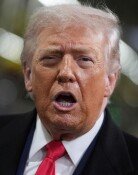Is Household Electricity Charge An Easy Prey?
Is Household Electricity Charge An Easy Prey?
Posted July. 28, 2001 08:54,
Household electricity charge is too expensive. It is 53 percent higher than the prime coast. It was reported that household electricity charge is more expensive than the electricity charge in the entertainment places such as nightclubs and room-salons.
Electricity charge on the industry use is 17 percent lower than the prime coast and the Korean Electric Power Corporation (KEPC) makes up for losses with a part of the household electricity charge amounting to 1.5467 trillion won. Household is an easy `prey`.
According to the Ministry of Commerce, Industry, and Energy` document on the prime cost of electricity and the approval of the sale price in 2001, which was obtained by Dong-a Ilbo, the KEPC`s unit cost per kW was a total amount of 73.56 won, which was the combination of 48.26 won on the cost for development, 17.84 on the cost of business, and 7.46 won on other costs.
Having divided the sale price into 7 categories, the KEPC charges 112.55 won, the most expensive price, on the household electricity. This is 4 percent higher than the unit cost of 108.70 won, which is charged on the electricity in the love hotels and bars.
Meanwhile, electricity charge on the industry use, which is 60.80 won per kW, is half of the household charge. Electricity charge on the agricultural use is 44.53 won per kW, and 24.05 won for the late night use.
Especially, as many companies do not save energy due to the electricity charge on the industrial use, which is lower than the prime cost, it has been pointed out that the production system of high energy consumption is not improving.
Therefore, those households, which use 39.67 billion kWh this year, have to pay a total amount of 4.4648 trillion won including an additional amount of 1.5467 trillion won (when the progressive stage system is not applied) due to the sale price of electricity which is more expensive than the prime cost.
Especially, besides the sale price, which is 53 percent higher the prime cost, 10 percent of the value added tax is added to the household electricity charge. Moreover, the progressive stage system on the electricity charge, which can make the maximum of 18 time-difference in charge, increases burden laid on households.
Kim Dong-Won, director of the resource policy in the Ministry of Commerce, Industry and Energy, said that ``it is true that there is hardly any country that charges the electricity differently depending on the usage. The government plans to change the system to reflect the prime cost, since the existing system of electricity charge does not fit the market economy system, which decides the price according to the demand and supply.``
sckim007@donga.com







